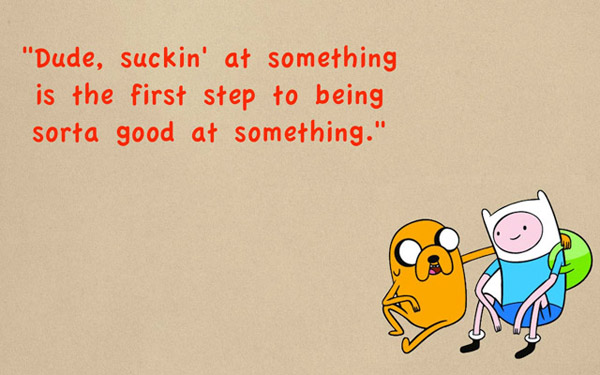When it comes to learning, “becoming better at money” is not something you find at the top of people’s list of interests. In being asked to investigate this skill, you may find yourself thinking: how can I become better with money when I don’t even have enough of it to make ends meet? For those who are living paycheck-to-paycheck or without significant savings, becoming better at money feels like a low-priority item; there’s no motivation to improve our knowledge of it (at least until we have more of it).
This blog is our chance to turn that mindset around; and let this post be the start of it. In our time together, I will be introducing simple and straightforward ideas to increase our income through becoming better at money. The first idea is deceptively easy, and can have you earning upwards of $720/hour on your first go-around! Sound ridiculous? Let’s look at a real-world example to see how it works:
NICK THE GREEK EARNS $720 AN HOUR
Our friend Nick the Greek heard that his wireless provider, “Big V Wireless,” is providing excellent promotional rates for new customers. In fact, the introductory rates ($68/month) are far better than what he’s currently paying ($83/month). Now, Nick happens to have an excellent business sense and knows that in any business, retaining a current customer is much easier (and less costly!) than creating a new one. With this in mind, he picks up his cell phone and calls up Big V’s Customer Service Line.
He knows that the customer service representative (CSR) who just answered is a human being; just a woman making some money in a job she may not particularly enjoy. Nick opens the call in a cheery voice, learning the CSR’s name (Denise), telling her how he enjoys Big V’s service and that the support he’s received in the past has been phenomenal. He then makes a joke about a competitor that gets Denise to laugh. Already Denise doesn’t consider this to be a normal support call – when you’re used to dealing with ignorant complaining customers all day, a pleasant and understanding voice can be a powerful pattern interrupt!
After talking for a while and asking a few key questions about his status as a customer, Nick asks Denise about the promotional rates. Denise, having received a strong emotional payment, is happy to create a way to keep Nick on as a customer, keep him satisfied, and save him some money in the meantime! After all, that’s her job – and everyone enjoys doing their job well. Nick receives the promotional rate, reduces his bill from $83 to $68 monthly, and graciously offers to fill out a short survey afterwards to give Denise a glowing review.
Total time invested? 15 minutes.
SO HOW DID NICK EARN $720 AN HOUR?
Certain math-savvy folks will see this immediately; for those that don’t, here’s the simple explanation:
- Nick spent 15 minutes calling Big V Wireless.
- In that 15 minutes, Nick saved $15/month on his bill.
- Over the next year, Nick saves a total of $180 ($15*12 months)
- Therefore, Nick saved $180 in 15 minutes of his time. Or,
- Nick earned $720/hour for exactly 15 minutes. ($180*4, since 15 minutes is 1/4 hour)
THE PATTERN OF ‘HIGH-VALUE ACTIVITY’
This story is one concrete example of the pattern of a High-Value Activity: spending minimal time to create a massive wealth gain. In our example, Nick’s High-Value Activity ‘wage’ was $720/hour, which he earned for 15 minutes. You might say, “Sure, but how many times can he call Big V Wireless to reduce his bill?” – well, the answer is, as often as he wants and is reasonable! While there may be diminishing returns in the short-term, he could potentially do the same thing one year later, and further reduce his bill (in fact, he now does this on an annual basis with all of his recurring bills).
The High-Value Activity is an infinitely repeatable pattern that we must learn and master in our journey to becoming better at money. There are many, many situations in our lives where we can use this same pattern effectively – but until we know to look for these situations they will remain invisible. As with many of the patterns we’ll learn, step one is being aware that the pattern exists. The rest of the journey is creating opportunities to use it effectively. In a way, identifying and creating High-Value Activities becomes an art in itself – one that pays hugely both financially ($$) and emotionally (exhilaration at creating such a great deal out of nothing!).
Here are a few very real examples to help get you started thinking down this path:
- When planning a vacation, you spend one hour thinking about then contacting close friends and family who may know someone near your destination. This person would be happy to let you crash at their place for a few nights, saving you hundreds in hotel fees, and knowing some great places around town to enjoy yourself!
- When interviewing for a new position, you spend three hours watching YouTube videos on how to negotiate salary and how to politely and firmly request a signing bonus. You receive the signing bonus and an increased salary, netting well over $1000/hour for your time invested.
- When shopping for a new car, you find the sub-community on www.reddit.com and take 15 minutes post a well-thought out question to the members of that subreddit. You receive multiple answers that help you make better purchasing decisions; finding a better version of the car for less price than you anticipated paying for it.
Please share your examples in the comments for others to try!

